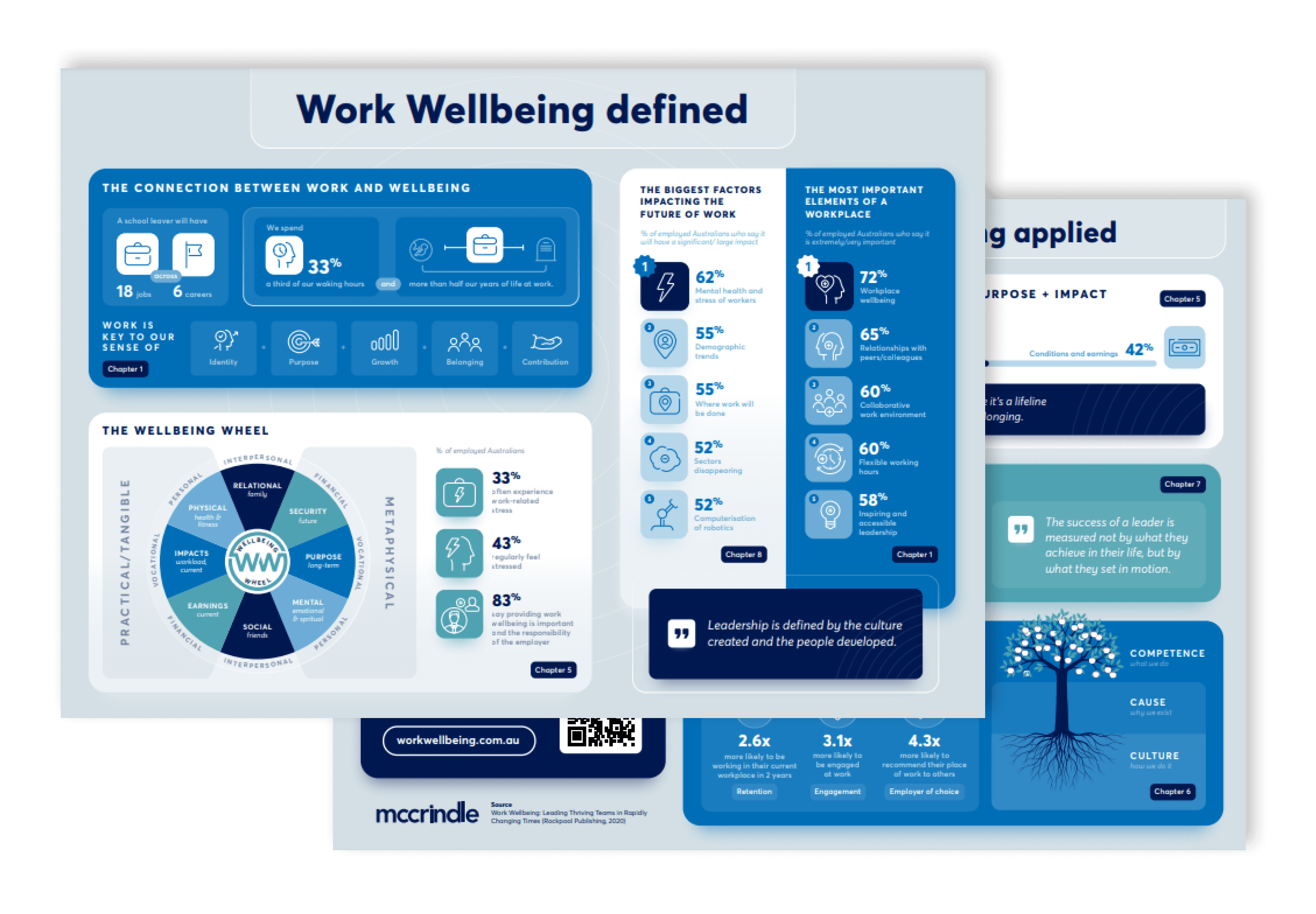ARTICLE
Why work wellbeing must be the key issue for workplace leaders

There are many reasons why work wellbeing needs to be at the top of the agendas of workplace leaders. Western culture faces significant health concerns from people being overworked, stressed and burnt out, which not only impacts people’s personal health and ability to thrive, it can also lead to increased absenteeism, presenteeism and decreased productivity. All of these issues will affect an organisation’s ability to perform well.
Over the last few decades the focus wellbeing has been given in our personal and professional lives has increased, and it’s not hard to see why. If people’s wellbeing is not prioritised it has negative implications at both individual and organisational levels, giving rise to the toxic results of stress on increasing mental health issues and higher employee turnover.
Work has become the third place
Historically, the ‘third place’ refers to social settings that are separate from the two usual social environments: home (first place) and the workplace (second place). Traditionally, examples of third-place environments would be churches, libraries, parks or cafes. Careers today have morphed and evolved, and the role of work in our lives is also less isolated than it used to be. While work does blur with life, the expectations we bring to work are not just a fair day’s work for a fair day’s pay. It’s now also about social needs, self-actualisation and the contribution we can make to our community. As a result, we are seeing the workplace not only be the second space, but the third place as well.
Mental health and stress
Work can be a key contributor to people feeling stressed and overwhelmed. More than two in five workers (43%) said they always or regularly feel stressed, a third of workers (33%) said they always or often experience work-related stress and 16% said they feel stressed at work to the point that it’s a problem.
When it comes to work, Western culture has elevated being busy to the point of feeling overwhelmed, resulting in a toxic definition of success: that being busy and overwhelmed is something to be proud of. Australians are known for asking and answering their own questions: ‘How are you, good?’ Or more often these days: ‘How is it going: busy?’ Indeed, a typical opening to a request is: ‘I know you are busy, but …’ Being busy is not necessarily a negative thing. A busy life can be engaging and motivating, and we can feel as though we have a sense of purpose and meaning when we feel like we are contributing. But when busyness and workplace stress consistently impede on other significant areas of our life, that’s when work can have a negative impact on wellbeing.
Burnout
Stress and the lack of attention to our mental health are fuelling a workplace condition that impacts millions of people around the world: burnout. In our worker survey, 37% said they always or regularly feel busy to the point they struggle to keep on top of things, and more than one in five (22%) said they always or often experience burnout. When workers experience burnout, it can lead to disengagement and a lack of motivation with the role or organisation, especially if people feel consistently taken advantage of or not appreciated for going over and above. This can in turn lead to absenteeism (taking sick leave) and to presenteeism (where people are physically present while they are unwell, disengaged, distracted or disconnected from what they are doing in the present).
While there is a difference between hard work and burnout, workplace leaders need to be on the lookout for their teams and encourage practices that help them to prioritise their workload while allowing time for them to care for and invest in other aspects of their wellbeing.





